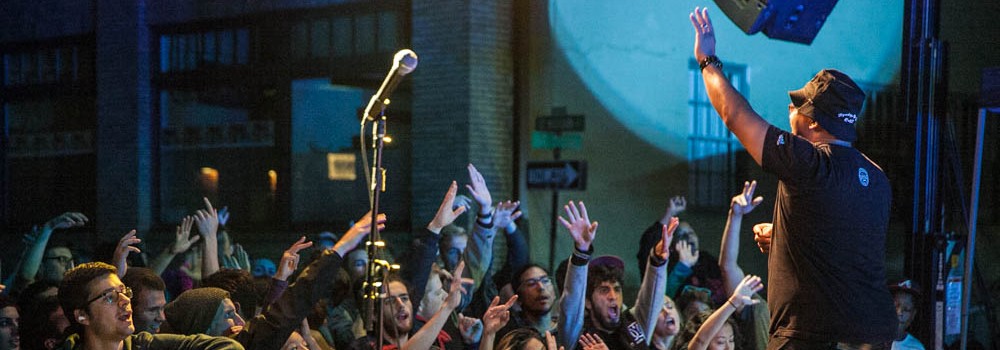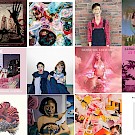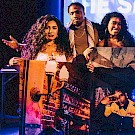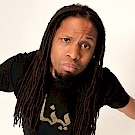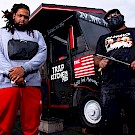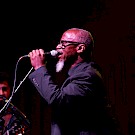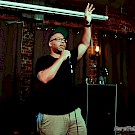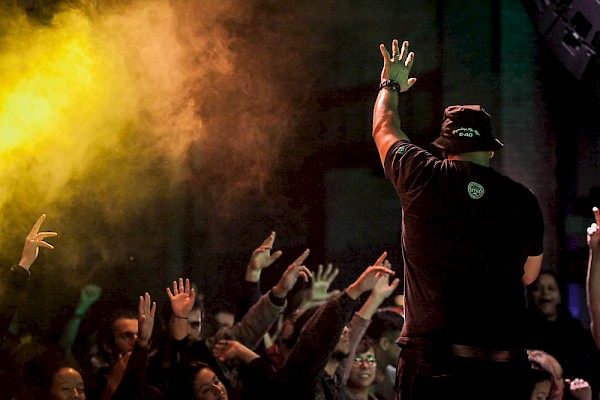 Cool Nutz rocking PDX Pop Now! on July 26, 2015 alongside numerous other local hip-hop acts who filled key spots on the three-day bill and brought out huge crowds—click to see a whole gallery of photos by Tojo AndrianarivoIn a city that prides and promotes itself as a bastion of hipster culture, it’s surprising to many that rap music even exists here. Articles written for national press outlets—fueled by stories of police and OLCC harassment at rap shows and club closures in 2014—often begin with a common disclaimer: “You might not expect this, but there’s hip-hop in Portland.”
Cool Nutz rocking PDX Pop Now! on July 26, 2015 alongside numerous other local hip-hop acts who filled key spots on the three-day bill and brought out huge crowds—click to see a whole gallery of photos by Tojo AndrianarivoIn a city that prides and promotes itself as a bastion of hipster culture, it’s surprising to many that rap music even exists here. Articles written for national press outlets—fueled by stories of police and OLCC harassment at rap shows and club closures in 2014—often begin with a common disclaimer: “You might not expect this, but there’s hip-hop in Portland.”
Admittedly, the mainstream imagery of rap culture doesn’t seem to mesh with the image that is sold of this bubbling metropolis, but beyond the layers of organic coffee shops, taco trucks, vegan strip clubs, DINK housing, and nonprofits exist the same inner-city conditions you might find in any major city. It is here that we find a vibrant and expansive hip-hop scene from which some of the city’s best music is generated, doing all it can to be recognized.
Don’t get me wrong, some of our rap standouts bask in the irony that gives Portland its niche standing in popular culture. Neka & Kahlo, for example, are a wildly talented hip-hop duo consisting of a gospel-trained, beatsmithing sister named Neka and her rapping wife, Kahlo. Throwing every stereotype out the window, the pair have found success locally by masterfully fusing electronic, soul and hip-hop music while appealing to the city’s zeal for the unconventional.
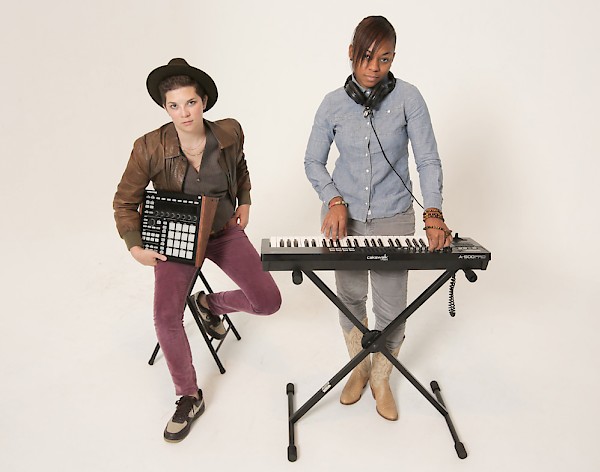 Neka & Kahlo: Photo by Kevin Hasenkopf“When we create music we don’t think, ‘let’s go for this hip-hop sound’ or ‘that Portland sound,’” Neka Perini says. “We look to blend elements from many genres and do what feels right because we are both a product of eclectic tastes. And as people, we’re not one-dimensional. I think we have something that can appeal to many people, even those married to the indie rock scene.”
Neka & Kahlo: Photo by Kevin Hasenkopf“When we create music we don’t think, ‘let’s go for this hip-hop sound’ or ‘that Portland sound,’” Neka Perini says. “We look to blend elements from many genres and do what feels right because we are both a product of eclectic tastes. And as people, we’re not one-dimensional. I think we have something that can appeal to many people, even those married to the indie rock scene.”
What success often comes down to is crossover appeal. More conventional rap group TxE (emcees Tope and Epp with producer G_Force) stepped into the indie world in 2012 when Tope signed to indie rock label Amigo/Amiga and almost instantaneously found himself on Willamette Week’s famed (and often guitar-dominated) Best New Band list. The following year, the trio—who formed in 2009—jumped in with both feet when G_Force connected with popular Portland bossa nova pop band Radiation City, putting out the hip-hop-heavy remix project A Different Animal. The trio quickly followed up with Vs PRTLND, a rap album built over beats sampling local indie rock. (Listen to the record at the end of this article.) Known for high-energy live sets and party vibes, TxE quickly found themselves in high demand at indie shows and festivals, eventually landing on the Best New Band list as a group in 2014 before disbanding to pursue solo ventures.
While tapping into the city’s more popular veins has worked for a few, most rappers are less apt—or possibly less equipped—to appeal to Portland’s mainstream. It’s no secret that both the OLCC and the city (including the police department and fire marshal) have been less than supportive of hip-hop-related nightlife in Portland, and this has pushed the majority of rappers to find fans through alternate means. The omnipresent side-eye has also fostered a chip of sorts on the shoulders of the community, creating camaraderie amongst and competition between the scene’s players.
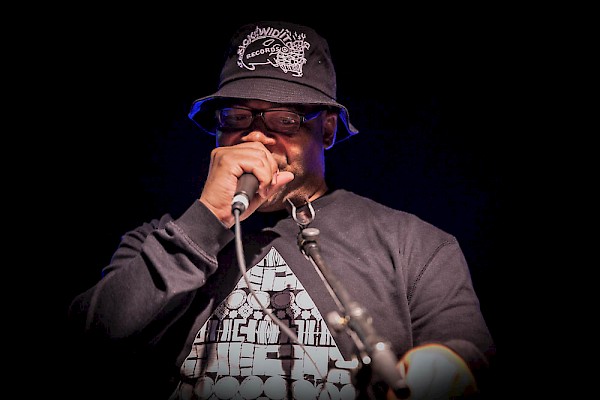 Cool Nutz at PDX Pop Now! 2015—click to see a whole gallery of photos by Tojo AndrianarivoLongtime rap stalwart Cool Nutz has consistently done things his own way in a city that all but ignores his musical accomplishments. Arguably the most successful hip-hop artist in Portland’s history, Nutz has been rapping unapologetically about the streets he grew up in since the mid-‘90s, offering no bones for the mainstream to bite on. Often embattled rappers such as Drae Steves and Mikey Vegaz have followed in his path, gathering huge followings in the city’s less publicized circles.
Cool Nutz at PDX Pop Now! 2015—click to see a whole gallery of photos by Tojo AndrianarivoLongtime rap stalwart Cool Nutz has consistently done things his own way in a city that all but ignores his musical accomplishments. Arguably the most successful hip-hop artist in Portland’s history, Nutz has been rapping unapologetically about the streets he grew up in since the mid-‘90s, offering no bones for the mainstream to bite on. Often embattled rappers such as Drae Steves and Mikey Vegaz have followed in his path, gathering huge followings in the city’s less publicized circles.
“There’s always a challenge for establishing a strong base for what’s considered urban music in a market like Portland as people don’t think there is a true street culture out here,” Cool Nutz explains. “People tend to believe we are emulating something that is nonexistent in Portland. This isn’t L.A., Chicago or NY so at times you don’t have the numbers needed to catapult a Mikey Vegaz, Drae Steves or Maniac Lok to the next level. All you can do is continue to build a base, stay active and work to circulate your music.”
Many of the city’s most talented rappers eventually leave for larger markets that are more amiable to their craft. Seeing the ceiling approach, popular wordsmiths such as HANiF (formerly Luck-One), Cory Kendrix and Cassow, as well as the aforementioned Tope, G_Force and Neka & Kahlo, have understandably jumped ship for more urban cities with larger fan bases such as New York, L.A. and Oakland.
“Growing up in Portland my whole life, I wanted to experience something new, something with more culture and diversity,” says Tope, who relocated to the Bay Area earlier this year. “Plus, playing live in the PDX scene since I was 19, I knew it was time to leave and attempt to expand my network and fan base in another region.”
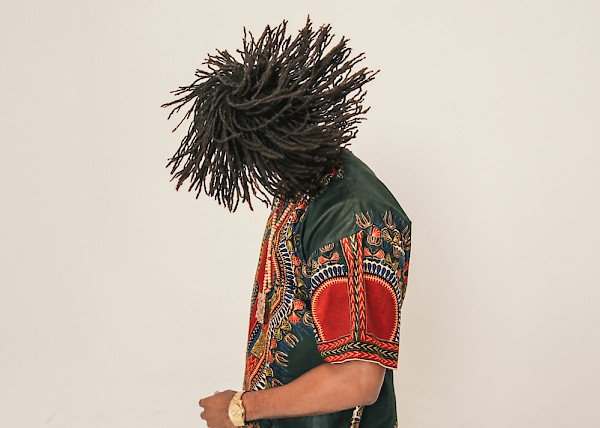 Rasheed Jamal: Photo by Kevin HasenkopfEven Illmaculate, one of the world’s best battle rappers and current KOTD rap battle league champion, is known to spend copious amounts of time away from home in order to continue his grind.
Rasheed Jamal: Photo by Kevin HasenkopfEven Illmaculate, one of the world’s best battle rappers and current KOTD rap battle league champion, is known to spend copious amounts of time away from home in order to continue his grind.
“I was fortunate to understand the importance of traveling beyond the city,” Cool Nutz says, “as that helped establish our movement on a broader scale. However, it’s still a challenge, especially in a market where gentrification has truly affected our urban base and taken away a huge part of our actual black community.”
What is perhaps most interesting about Portland’s rap scene, though, is its ability to regenerate in the face of these challenges. Continued pressure from authorities creates an attractive and rebellious air to the scene, something that appeals to the stereotypical culturally curious Portlander. The exodus of talent—expected by many to weaken the ranks—instead results in increased awareness of Portland rap on a national level, creating interest in the scene and expanding the networks of those here at home. In addition, many players from other genres have taken notice and lent support; to that point, the last two years of PDX Pop Now! have brought out huge crowds for headlining rap acts.
Rapidly gentrifying areas in the north and northeast quadrants have exploded with rap talent in recent years as phenomenal young rappers such as Tre Redeau, Mic Capes, Mat Randol, Rasheed Jamal and Fountaine are capturing their stories with conscious rhymes laced with fresh perspectives.
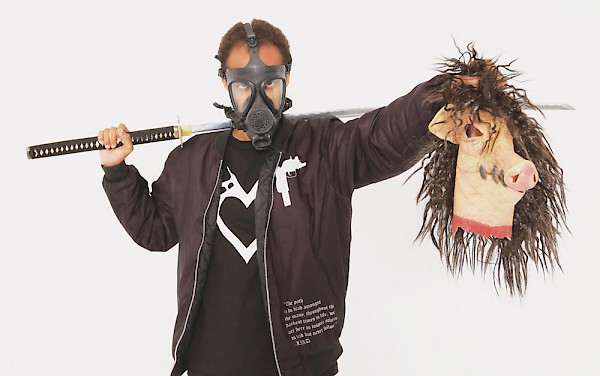 Glenn Waco: Photo by Kevin HasenkopfSavvy St. Johns rapper Glenn Waco found himself in the midst of the Black Lives Matter movement, which greatly increased his own popularity (and notoriety) in the city. The political attention has impacted his career and personal life. “For one, I don’t think I would have been hit up by Janelle Monáe’s people when they wanted to come down here and support the community,” says Waco of the star’s recent visit and rally with Don’t Shoot PDX leaders. “On the other hand, instead of people shouting my name giving me props for NorthBound [Waco’s 2013 record] in the streets, I literally have had people—young and old—stop, give me the biggest hug, thank me for what I’m doing and tell me how much I inspire them.”
Glenn Waco: Photo by Kevin HasenkopfSavvy St. Johns rapper Glenn Waco found himself in the midst of the Black Lives Matter movement, which greatly increased his own popularity (and notoriety) in the city. The political attention has impacted his career and personal life. “For one, I don’t think I would have been hit up by Janelle Monáe’s people when they wanted to come down here and support the community,” says Waco of the star’s recent visit and rally with Don’t Shoot PDX leaders. “On the other hand, instead of people shouting my name giving me props for NorthBound [Waco’s 2013 record] in the streets, I literally have had people—young and old—stop, give me the biggest hug, thank me for what I’m doing and tell me how much I inspire them.”
Meanwhile, the legalization of marijuana—a common topic in rap music—is creating new lanes for rappers such as the 2Reps, who embarked on a “dispensary tour” throughout Washington State over the summer. Even Damian Lillard—the Trail Blazers exciting young point guard—has taken to rapping, clinching his first live performance at Holocene, which opened its doors to local rap this year.
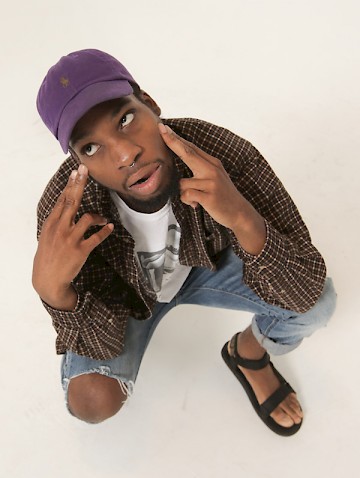 Fountaine: Photo by Kevin HasenkopfThe city’s efforts to suppress hip-hop and push the Portlandia agenda have created somewhat of a counterculture that has galvanized the scene across its various subgenres. “The people who would clown me for rhyming back in middle school are all rappers now,” says emcee and engineer Mat Randol. “It’s a cool thing to rap for whatever reason.”
Fountaine: Photo by Kevin HasenkopfThe city’s efforts to suppress hip-hop and push the Portlandia agenda have created somewhat of a counterculture that has galvanized the scene across its various subgenres. “The people who would clown me for rhyming back in middle school are all rappers now,” says emcee and engineer Mat Randol. “It’s a cool thing to rap for whatever reason.”
Another factor helping the scene is mentorship from other musicians, especially in North Portland. Famed trumpeter Farnell Newton has long supported and encouraged rappers, such as Randol, who have grown up in the Roosevelt High neighborhood. Paul Lindsay, who taught music at the Regence Boys & Girls Club in the New Columbia public housing community, and local rapper Vinnie Dewayne have also lent helping hands to burgeoning rappers over the years, as has funk musician Tony Ozier.
Young rappers not only have the support of their veteran counterparts, but of the music scene as a whole. And with that, the sky is truly the limit.

